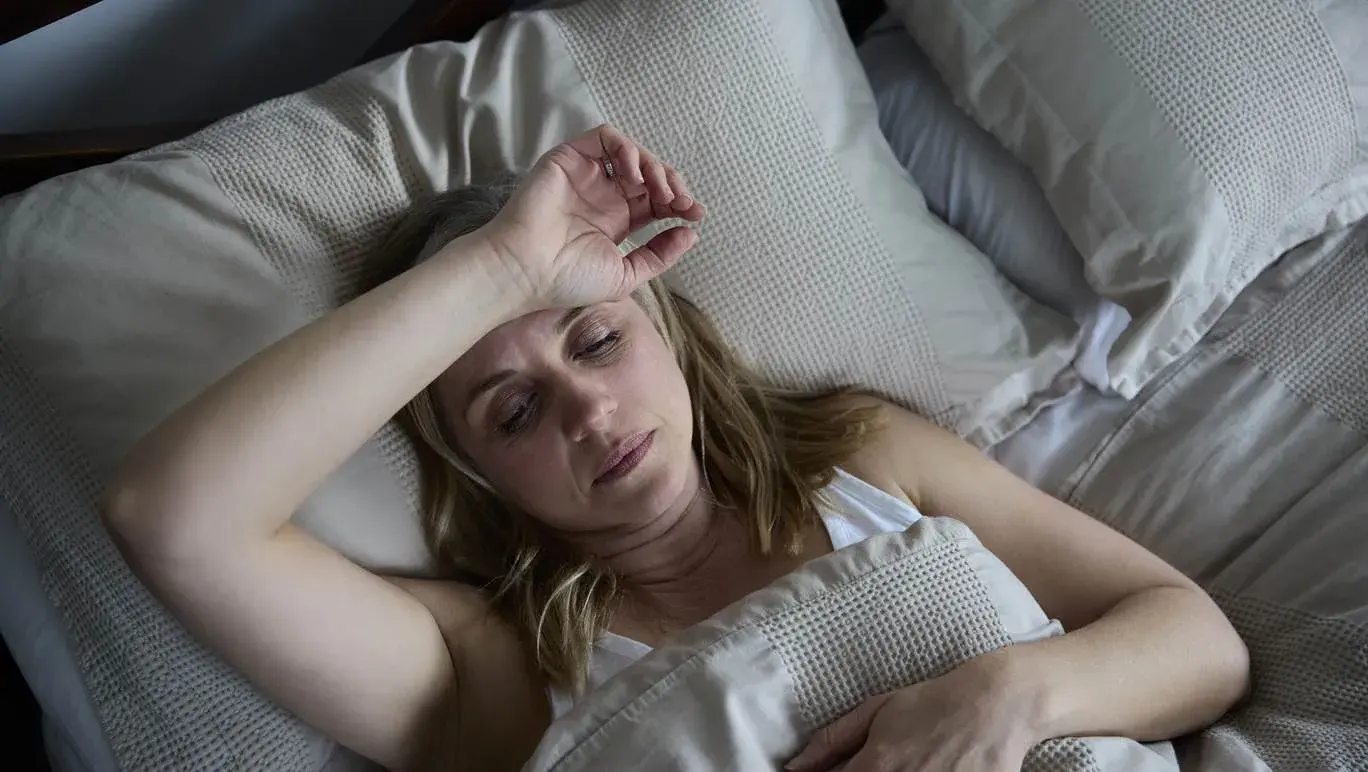Night Sweats: Causes, Management, and When to Seek Help

What causes night sweats?
Night sweats can be more than just an annoying disruption to your sleep. They might be a sign that something’s going on in your body. From hormonal changes to certain medical conditions, many factors can trigger night sweats. Let’s explore the common causes of night sweats to help you understand when to take action.
What are night sweats?
The term “night sweats” refers to the experience of sweating excessively while sleeping at night. This sweating soaks through clothing and bedding, even when your sleep environment is not particularly warm. Night sweats occur for a variety of reasons and can be distressing and disruptive. It can also affect anyone of any age and any gender.
Understanding night sweats
Night sweats differ from mild overheating and can be linked to physiological or medical conditions. While occasional sweating may be due to environmental factors like heavy bedding or very hot environmental temperatures, persistent or severe night sweats may signal an underlying health issue. It’s important to note that most people who sweat at night don’t have a serious underlying medical issue, especially if the sweating at night is not frequent, it’s quite mild and there aren't any daytime symptoms either. Understanding the causes of the nighttime sweating, and knowing when to seek help, is key to managing this symptom effectively.
Common causes of night sweats:
The most common causes of night sweats, and the most talked about, are the hormonal fluctuations experienced in menopause, perimenopause and pregnancy. Less well known causes include health conditions such as the blood-based cancers, sleep apnoea, stress, anxiety, nightmares and some medications.
Pregnancy
Hormonal changes, increased blood flow, fluctuations in temperature, increased body weight and associated metabolic changes can all contribute to nighttime sweating, especially in the first and third trimesters.
Peri-menopause and menopause
When oestrogen levels drop, it affects the part of your brain (the hypothalamus) that controls body temperature, causing hot flashes and night sweats.
Fevers and infections
Conditions like tuberculosis, HIV, endocarditis, and influenza can cause fever-related night sweats.Even after a minor infection, your body may keep sweating during sleep as the body attempts to regulate your temperature.
Other medical conditions
According to medical experts, there can be many reasons for night sweats.
Sleep apnoea
Sleep apnoea is a condition where your breathing stops and starts during sleep. This can cause night sweats, as your body reacts to low oxygen levels when breathing briefly stops.
Cancer
Blood cancers such as lymphoma and leukemia can be associated with drenching night sweats.
Anxiety and stress
People experiencing anxiety, nightmares, and Post Traumatic Stress Disorder (PTSD) can have an activated sympathetic nervous system, leading to nighttime sweating.
Medications
Some medications such as antidepressants, steroids, fever reducing medications, and some hormone therapies are known triggers for night sweats.
How to manage night sweats?
The initial part of managing night sweats is to have a thorough assessment of what’s causing them. The following strategies may also be helpful.
Lifestyle adjustments
- Sleep in breathable non synthetic fabrics
- Use lightweight bedding and keep the room cool (17–19°C).
- Limit alcohol, caffeine, spicy foods, and late-night exercise.
Stress reduction
- Practice mindfulness, yoga, or relaxation techniques, manage your workloads to reduce anxiety-induced sweating.
Medical approaches to management of night sweats
- Menopause hormone therapy (MHT, previously known as HRT) for menopause-related symptoms may be a component of what your doctor could provide for you to help manage night sweats that were interfering with your sleep quality.
- Your doctor might adjust medications (say bring a daily dose earlier in the day) if they were thought to be contributing to nighttime sweating.
- You may need to talk to your doctor about treating underlying conditions like infections, thyroid disorders, or sleep apnoea.
When to see a doctor
Seek medical advice if night sweats:
- Occur regularly and disrupt sleep and persist for weeks, not just days.
- Are accompanied by symptoms like fever, weight loss, pain, or cough
- You’re waking up drenched and unable to sleep through the night.
- Persist beyond menopause or postpartum periods.
- Are unexplained and do not respond to lifestyle changes and impact negatively on your quality of life.
The bottom line
Although the occasional night sweat can be common and often benign, it’s important to know that they can signal potentially serious underlying health issues, especially if they aren’t triggered by your bedroom environment. Persistent night sweats shouldn’t be ignored. Identifying the cause, whether they relate to hormonal, infectious, medical or psychological issues, is an essential component of knowing what to do about night sweats. With proper management and medical guidance, most people can find relief, get a sense of the cause and restore restful sleep. Most often it’s just a temporary disruption, but it’s very important not to ignore it or think it’s a normal symptom that doesn’t need investigating.
Reviewed by Healthylife Advisory Board August 2025
This article is for informational purposes only and does not provide medical advice, diagnosis, or treatment. Any information published on this website or by this brand is not intended as a substitute for medical advice. If you have any concerns or questions about your health you should consult with a health professional.
